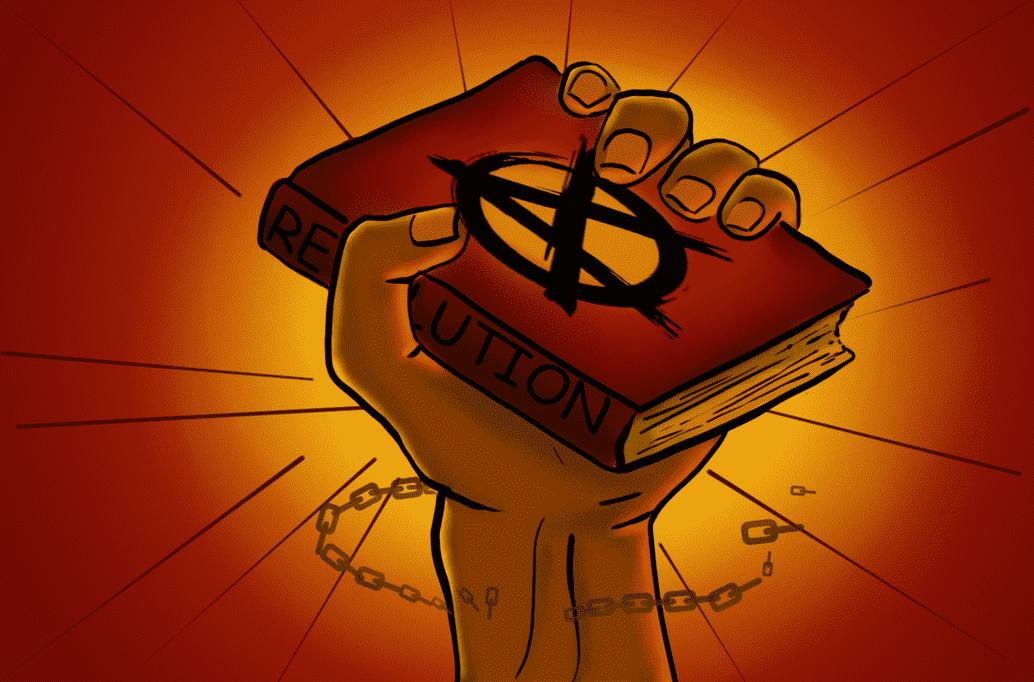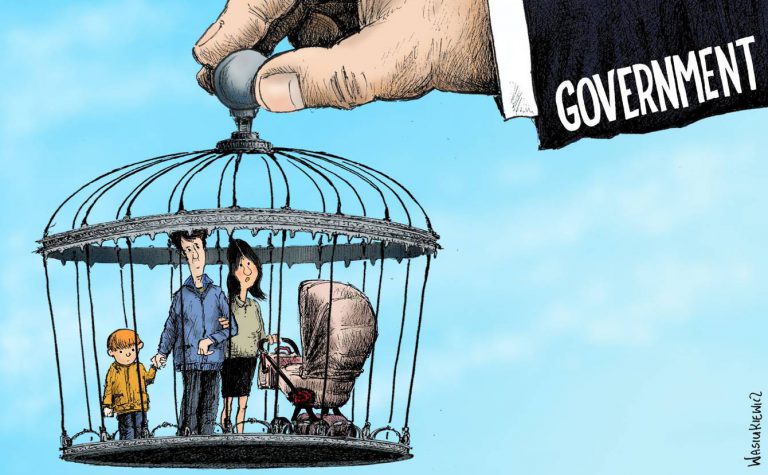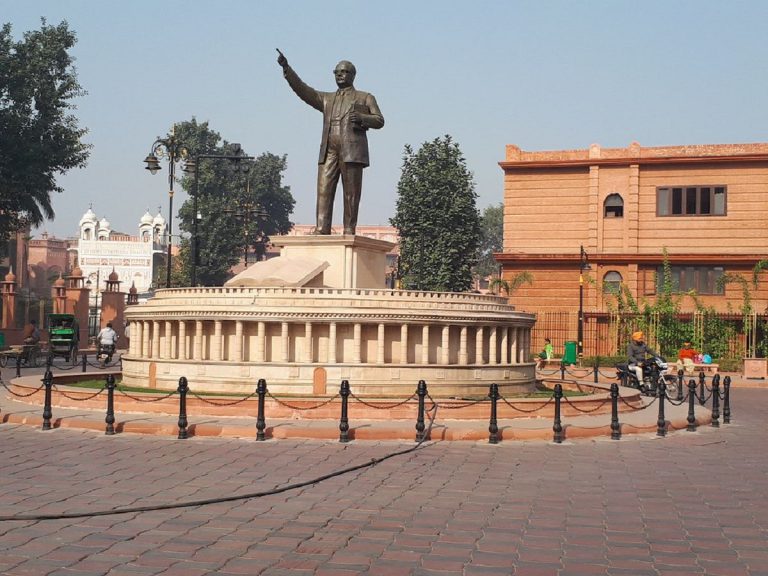Rethinking Anarchism: On Freedom and Leadership
Anarchism is an ideology that may seem perplexing at first but has a profound allure. It is often misunderstood as chaotic and infeasible, but a closer look reveals its deep-seated commitment to liberty, community, and adaptable leadership.[i] From a Global South’s standpoint, this ideology presents a unique and appealing way to comprehend the dynamics of leadership and governance. In a world where traditional ideas of leadership usually revolve around central authority and strict hierarchies, anarchism introduces a paradigm shift. It promotes community-based decision-making, direct democracy, and the rejection of permanent, institutionalized leadership. While this might appear unconventional, it resonates with the aspirations of many communities, particularly in South Asia, where people yearn for self-determination, independence, and a more significant role in shaping their destinies.
A Non-Native Speaker’s Perspective
For those less acquainted with the nuances of English, the concept of anarchism may initially appear perplexing. It is crucial to comprehend that anarchism is not synonymous with chaos or disorder, as some may hastily assume. Instead, it is a political philosophy that values individual liberty, community involvement, and adaptable leadership. It differs from conventional systems by eschewing permanent, rigid hierarchies in favor of dynamic, consensus-driven decision-making.
In my journey to grasp the essence of anarchism, I have encountered a fundamental shift in the understanding of leadership. Traditional paradigms of leadership often feature authoritative figures who wield considerable power and influence. These leaders typically make decisions on behalf of the larger community. However, anarchism challenges this notion by emphasizing the importance of communal participation. Rather than relying on a single, unchanging leader, anarchist principles advocate for leadership roles that emerge based on individuals’ strengths and expertise.[ii]
The beauty of this approach is that it acknowledges the ever-evolving nature of human society. Circumstances change, and challenges arise that demand specific skills and insights. Therefore, the concept of leadership is not fixed; it is dynamic and situational. In essence, leadership roles are earned and not imposed. When an individual possesses unique strengths or a particular understanding of a specific matter, they naturally guide or facilitate the decision-making process. This approach ensures that leadership remains adaptable and responsive to the shifting needs of the community.
Anarchism and Direct Democracy: A Matter of Scale
The analysis of the concept of direct democracy within the context of anarchism reveals a nuanced perspective on the practicality of this democratic model, particularly when scaled up to encompass larger and more complex nations, such as the United Kingdom. This analysis also highlights the critical distinction between direct democracy as conceived within anarchism and the misconceptions that associate it with the requirement for unanimous agreement on every issue.
In the traditional understanding of direct democracy, there exists a common perception that unanimous agreement is necessary for every decision. This perspective often leads to skepticism about the feasibility of direct democracy on a national scale. Critics argue that obtaining unanimous consensus on a wide range of issues is not only impractical but could also result in chaos and inefficiency. This skepticism primarily emerges from the fear that the process would become gridlocked due to the inability to reach unanimous decisions.[iii]
However, a closer examination of the anarchist approach to direct democracy reveals a different and more adaptable model. Anarchism does not advocate for absolute unanimity; rather, it values the diversity of opinions and encourages complex and multifaceted political discourse. Within this framework, the emphasis is not on everyone agreeing on every issue but rather on the active participation of the community members in decision-making processes.
Challenging Misconceptions
I find it necessary to confront the stereotypes surrounding anarchism, as they are both misleading and, at times, amusing. Among these stereotypes, one frequently associates anarchism with communal living and ceaseless drum circles, painting a picture reminiscent of a utopian hippie festival from the 1960s. However, I implore you to delve deeper, to go beyond these surface-level caricatures, and discover the profound philosophical underpinnings of anarchism.
In this pursuit, I aim not only to rectify these misrepresentations but also to shed light on the philosophy’s potential for profound societal change. What I’ve come to realize is that anarchism, as articulated in this passage, is an intricate and sophisticated ideology that respects the complexities of human existence. It defies the notion that anarchism necessitates uniformity or conformity to a singular belief system. Instead, it champions the diversity of viewpoints and acknowledges people’s capacity for nuanced and sophisticated discussions about the issues that hold a substantial impact on their lives.
Misunderstandings Surrounding Anarchism
Within the web of anarchism, its subtleties often get lost in character-limited chats, like Twitter. However, these complexities are essential for understanding and appreciating anarchism, which unfolds as a multi-dimensional concept. A common and widespread misunderstanding is that anarchism leads to chaos. In contrast, it values order, but not through the usual channels. Anarchism appreciates a different kind of order, one that arises from the collective will and agreement of a community. The confusion about anarchy being chaos comes from not grasping these basic ideas.[iv]
Another misconception is that anarchy means there’s no leadership or structure. But the reality is more intricate. Anarchism doesn’t inherently oppose leadership; it strongly opposes the permanence and hierarchy found in traditional systems. It acknowledges that leadership can naturally emerge based on the situation and the unique abilities of those involved. This dynamic idea of leadership ensures that authority remains in the hands of those most capable for the task, quite different from the oppressive hierarchies of established systems.
Direct Democracy and Concerns
The idea of direct democracy, a central component of anarchism, is often met with skepticism. Some worry that direct democracy may lead to populism or inefficiency. This apprehension is not entirely unfounded, as history has witnessed voluntary groups with questionable motives utilizing direct democracy for their purposes.
However, it is essential to recognize that direct democracy, as conceived in anarchism, is rooted in community involvement and engagement. It does not necessitate uniformity in opinion or unsophisticated decision-making. Instead, it emphasizes the active participation of community members in shaping decisions that affect their lives. By engaging in deliberative and inclusive processes, direct democracy encourages well-informed and thoughtful decisions.
A Multifaceted Philosophy
In conclusion, anarchism is a philosophy that champions freedom, community involvement, and adaptive leadership. It presents an intriguing perspective on governance, particularly for those who seek an alternative to traditional hierarchical systems. Anarchism’s core principles revolve around community-driven decision-making, direct democracy, and a rejection of permanent, top-down leadership. While stereotypes may persist, it is essential to recognize the complexity and sophistication of anarchist thought. Anarchism is not about imposing a single belief system or eliminating all forms of structure and order. It is about fostering diverse perspectives and enabling communities to make informed, nuanced decisions. The philosophy acknowledges the ever-changing nature of human society and adapts to the dynamic needs of communities.[v]
As we continue to engage in conversations about governance and leadership, it is vital to appreciate the diverse array of ideologies that shape our world. Anarchism, with its emphasis on liberty, community, and adaptable leadership, offers a distinctive viewpoint that challenges conventional norms. It encourages us to think critically about the structures and hierarchies that influence our lives, and it invites us to explore new avenues of collective decision-making and empowerment. In doing so, anarchism contributes to the ongoing discourse about the future of governance and the pursuit of a more equitable and inclusive society.
References
- Uri Gordon (2007) Anarchism reloaded, Journal of Political Ideologies, 12:1, 29-48, DOI: 10.1080/13569310601095598
- Novak, D. (1958). The Place of Anarchism in the History of Political Thought. The Review of Politics, 20(3), 307-329. https://doi.org/10.1017/S0034670500033040
- Gabardi, W. (1986). Anarchism. By David Miller. (London: J. M. Dent and Sons, 1984. Pp. 216. £10.95.). American Political Science Review, 80(1), 300-302. doi:10.2307/1957102 https://novi.uciteljneznalica.org/PDF/arhiva%20autora/857_Miller,%20David,%20Anarchism,%20J.%20M.%20Dent%20and%20Sons%20Ltd,%201984.pdf
- Anarchism: A Documentary History of Libertarian Ideas
- Curran, G. (2007). Anarchism Old and New. In: 21st Century Dissent. International Political Economy Series. Palgrave Macmillan, London. https://doi.org/10.1057/9780230800847_2









Very nice articulation, this truly offers a fresh perspective of such an universal phenomenon
👍👍👍